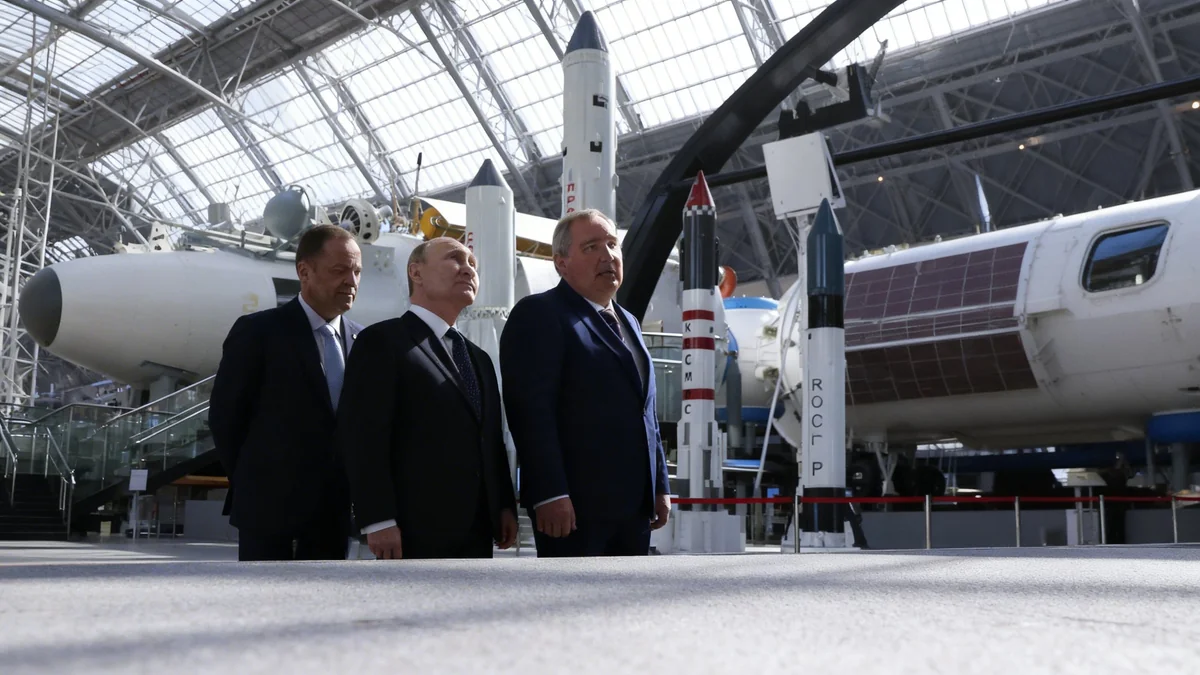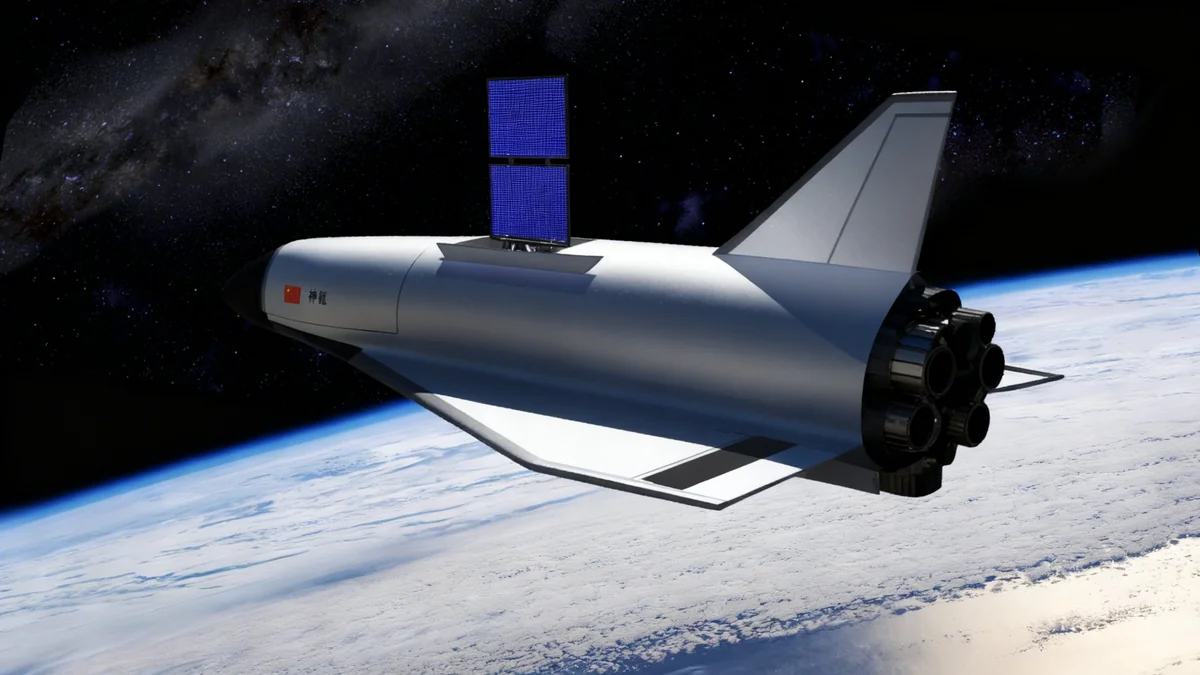Germany has announced a significant investment of €35 billion, equivalent to $41 billion, over the next five years to enhance its space security and defense capabilities. The plan, revealed by Defense Minister Boris Pistorius, aims to counter growing threats in orbit and establish a more resilient national space infrastructure.
The funding will support the development of new satellite constellations for reconnaissance and communication, improve cybersecurity for space assets, and strengthen Germany's overall ability to operate and defend its interests in space.
Key Takeaways
- Germany will invest €35 billion ($41 billion) in space security over the next five years.
- The initiative focuses on new satellite systems, improved cybersecurity, and enhanced space situational awareness.
- The investment is a direct response to perceived threats from nations like Russia and China.
- The plan involves significant collaboration with German and European space technology companies.
A New Strategic Focus on Space Defense
During a speech at the Federation of German Industries’ annual Space Congress in Berlin, Defense Minister Boris Pistorius outlined the government's comprehensive strategy. He stated that the Bundeswehr, Germany's armed forces, is actively developing structures for effective defense and deterrence in the space domain.
“We plan to acquire new satellite constellations — for early warning, reconnaissance, and communications,” Pistorius explained. He also emphasized the importance of dual-use systems, which are technologies applicable for both civilian and military purposes.
Core Investment Areas
The Ministry of Defence outlined several key pillars for the €35 billion investment:
- System Hardening: Strengthening space assets to make them more resilient against disruptions and direct attacks.
- Situational Awareness: Improving the ability to monitor space through radars, telescopes, and future sentinel satellites.
- Redundancy: Creating multiple, networked satellite constellations to ensure operational continuity if one system fails.
- Secured Space Access: Guaranteeing reliable and on-demand launch capabilities to deploy assets into orbit.
- Dedicated Operations: Establishing a specialized military satellite operations center within the Bundeswehr Space Command.
A central component of this strategy is a major push to improve cybersecurity across all space systems. This follows earlier calls from Maj. Gen. Michael Traut, commander of the German Space Command, who identified built-in self-protection for satellites as a critical need.
Responding to Geopolitical Threats in Orbit
Minister Pistorius directly linked the new spending plan to the increasing threats posed by Russia and China to Western space assets. He described modern reliance on satellite networks as a significant vulnerability for developed nations.
“Satellite networks today are an Achilles’ heel of modern societies. Whoever attacks them paralyzes entire nations,” Pistorius stated.
He referenced specific incidents to illustrate the current threat landscape. One example was the February 2022 Russian cyberattack on Viasat's satellite communication network, which occurred just before the invasion of Ukraine. According to reports, the attack had cascading effects, including disrupting German wind turbines connected to the network.
Close Encounters in Orbit
Pistorius also highlighted allegations that Russian Luch/Olymp satellites have been closely maneuvering near two communications satellites operated by the U.S. firm Intelsat, which are used by the Bundeswehr. Moscow has characterized these satellites as “inspector satellites,” but their close approaches to Western assets since 2015 have raised concerns about their true purpose.
These events underscore the growing recognition that space is a contested domain, requiring robust defensive measures to protect critical infrastructure for communication, navigation, and intelligence gathering.
Strengthening Germany's Domestic Space Industry
The German Ministry of Defence is actively seeking partnerships with domestic and European companies to implement its ambitious space agenda. Pistorius stressed a desire to support innovation from small and medium-sized enterprises (SMEs) while leveraging larger firms as system integrators.
Several major contracts have already been announced. Arianespace, Europe's leading launch provider, secured a contract to launch two SATCOMBw Stufe 3 satellites for the Bundeswehr on its new Ariane 6 rockets. These satellites will replace the aging COMSATBw 1 and 2 military communications satellites.
In another significant development, Planet Labs Germany GmbH, the European headquarters of the American firm, confirmed a multi-year agreement worth €240 million. Funded by the German government, the contract is for providing high-resolution satellite imagery to support European security. The company also announced plans to begin manufacturing its next-generation Pelican high-resolution satellites in Germany.
Market Implications and Germany's Rising Role
Analysts believe the substantial investment will significantly benefit Germany's space sector. Caleb Henry, director of research at Quilty Space, identified OHB, a Bremen-based company, as a primary beneficiary. Described as Germany’s “biggest space prime,” OHB operates the military's SAR-Lupe radar satellites and recently brought their replacements, the SARah constellation, into service.
Emerging German launch providers, such as Isar Aerospace and Rocket Factory Augsburg (RFA), could also see increased opportunities as Germany seeks sovereign launch capabilities.
A Shift in European Space Leadership?
According to Caleb Henry, this investment reflects a broader trend. “For a long time, when looking at where Europe... for the space industry that has always been France. But in recent years, we’ve started to see more of a pendulum swing towards Germany,” he noted.
Henry suggests this move is the “culmination of a growing desire in Germany for greater space autonomy.” The investment signals a willingness to pursue sovereign capabilities independently if necessary, potentially rebalancing the dynamics of space leadership within Europe.





